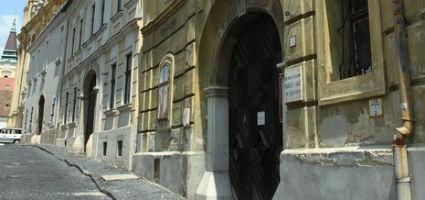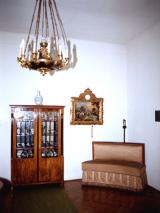2025. December 20. Saturday
King St. Stephen Museum - The Budenz House - The Ybl-Collection - Székesfehérvár
 |
Address: 8000, Székesfehérvár Arany J. u. 12.
Phone number: (22) 313-027, (22) 315-583
E-mail: szikm@iif.hu
Opening hours: Temporarily closed.
|
According to the interest and taste of Ybl, the collection mostly consists of the works of artists of the Hungarian plains and the representatives of post-impressionism in the 1930'ies. The plastic part of the collection presents almost every significant master of the first part of the 20th century. The paintings and statues are displayed on two floors of the house furnished with some pieces of furniture and applied arts items of the Ybl family.

Temporarily closed!
